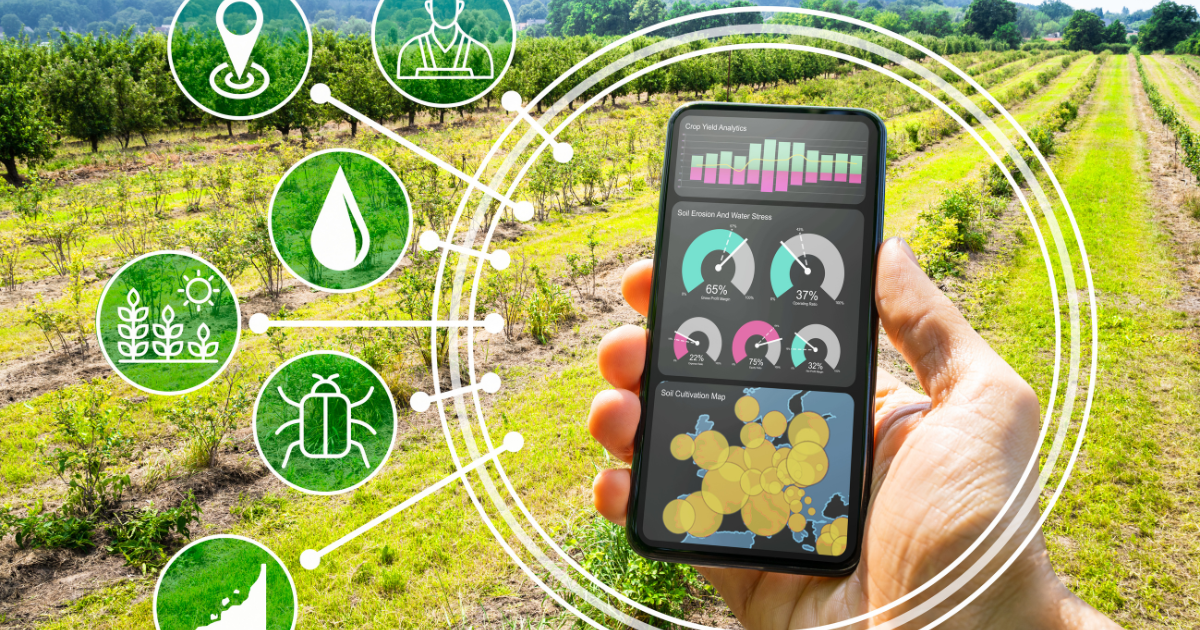Rooted in age-old farming practices, a transformative revolution is propelling as cutting-edge technology cultivates a new narrative for the farming industry. From modern machinery to data-driven insights, the powerful synergy between soil and silicon is fundamentally reshaping the very foundation of how we cultivate and reap our crops.
This blog post digs deep into the Developments in Farming Tech, revealing the seeds of change that promise a more sustainable, efficient, and connected future in agriculture.
Precision Agriculture
Harnessing the power of data, precision agriculture employs sensors, drones, and advanced analytics to enhance resource management. This maximizes crop yields while minimizing environmental impact. By precisely monitoring soil conditions, nutrient levels, and plant health, farmers can make well-informed decisions about irrigation, fertilization, and pest control, leading to a significant decrease in water and pesticide usage.
Robotics and Automation
The rise of robotics and automation in transforming labor-intensive tasks in agriculture, handling every task from weeing and harvesting to milking and sorting. Robots tirelessly move through fields, accurately identifying and removing weeds, while automated systems simplify the handling and processing of livestock products. This ensures uniform quality and reduces labor costs.
Vertical Farming
Responding to limited arable land and growing urban populations, vertical farming is gaining momentum. Growing crops in the vertically stacked layers within controlled environments allows farmers to enhance productivity, minimize land usage, and reduce the impact of transportation and storage.
Gene Editing Technologies
Gene editing techniques like CRISPR are revolutionizing crop development, enabling precise modification of plant genes. Scientists can now introduce beneficial traits, such as resistance to pests and diseases, improved nutritional value, and enhanced drought tolerance. This technology development in farming leads to the cultivation of healthier and more sustainable crops.
Blockchain Technology
Blockchain, the technology supporting cryptocurrencies, is now being applied in agriculture, ensuring traceability and transparency throughout the supply chain. By monitoring the movement of food products from farm to table, blockchain can prevent fraud, safeguard consumer interest, and enhance food safety.
Internet of Things (IoT)
The Internet of Things (IoT) is connecting agricultural equipment, sensors, and machinery, establishing a network of intelligent devices that exchange data and automatic tasks. This interconnected network facilitates the real-time monitoring of field conditions, resource utilization, and livestock health, providing farmers with valuable insights to enhance and optimize their operations.
Closure
These technological developments in farming mark a significant shift in agriculture, empowering farmers to produce more food with fewer resources while reducing environmental impact. As these technologies continue to progress and integrate, we can expect to see further transformative innovations that will define the future of farming, fostering a more sustainable, productive, and food-secure world.


